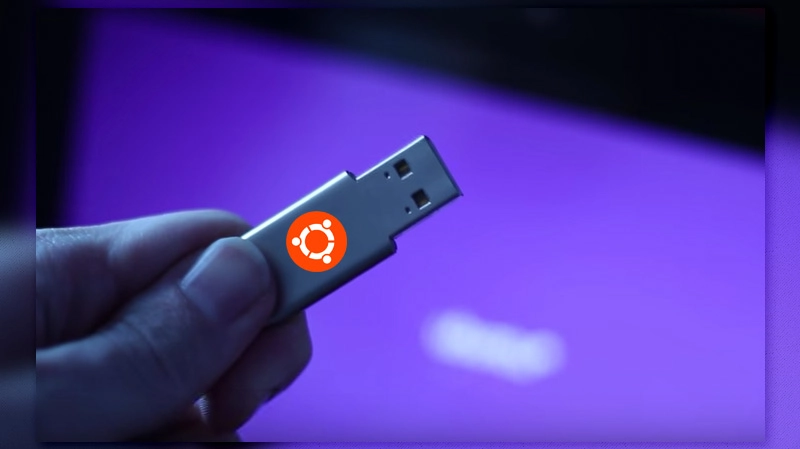Rufus, a popular open-source tool for making bootable USB drives on Windows, just released an update that includes a ‘fix’ for working with Ubuntu 24.04 LTS ISOs.
A truly versatile tool, Rufus is able to create bootable Windows installers from ISO files and disk images as well as Linux installers and, more pertinent to this news, persistent Ubuntu, Linux Mint, and Debian USB installers.
Rufus 4.5, released this week, includes support for persistence in Ubuntu 24.04 LTS. Additionally, this update also fixes issues when creating persistent Linux Mint 21.x USBs too.
Ubuntu USBs can now remain persistent, thanks to Rufus. This feature, which was first introduced in 2019, has led the developers frequently updating as distros continue to rename, update or modify the various files needed to enable this feature.
What exactly is a persistent Linux USB?
It is a method of making a bootable, portable installation without the actual need for installation. The ISO boots into a live session, just like a USB installer would. However, persistence adds a file or a partition called “casper-rw” (in Ubuntu) where files, settings, applications, etc. are stored.
A live Linux USB installer launches a clean OS version each time. Even though you can use the live session like an actual install (adding applications, modifying settings, etc.), all changes you make during the live session are lost once you shut down.
Changes on a Linux USB that is persistent remain even after rebooting.
Some similarities can be observed when comparing this to creating a USB installation. This involves using an installer to properly install the distro to the USB drive, which can then be used to boot other systems.
Persistent installers come with advantages such as less overhead and reduced space occupancy in comparison to a full, uncompressed installation to disk. Moreover, USB installations can be custom-made for specific hardware, which might affect their portability.
One of the distinct features of persistent installations is the ease of resetting the install. Without the need for rewriting, reformatting or reinstalling, one only needs to clear the persistent storage section. This feature makes persistent installations more suitable for impromptu testing under certain circumstances.
Persistent Ubuntu 24.04 USB has drawbacks: no Wayland; no user accounts; slower startup/shutdown; can’t switch session; and the Flutter installer will spawn on every boot.
What’s New in Rufus 4.5?
Since I’m here talking about the update I’ll list the other changes in Rufus 4.5.x release — most aren’t related to Ubuntu so don’t chide me for it in the comments for it, okay 😉
- Option to performruntime UEFI media validationfor Windows & Linux ISOs
- Fixes with/writing VHD/VHDX images
- Use Rufus MBRadvanced option moved to ‘cheat mode’ panel
- Fix support for Linux persistence in Linux Mint & Ubuntu 24.04 LTS
- Security vulnerability patches
- Internal GRUB bumped to v2.12
- UEFI:NTFS updated + now uses ntfs-3g driver
- Buffer size when copying ISO files increased
- Improve partition creation/handling
If you’ve been searching for a robust, open-source tool for creating bootable USBs on Windows and desire a tool that presents advanced choices, you may want to consider Rufus or at least store it in your memory for potential future necessities/recommendations.
One of its widely recognized features includes the ability to establish a Windows 11 USB installer utilizing the certified Windows 11 ISO however configured in such a way to avoid many of the built-in requirements that dissuade users from installing it on “unqualified” hardware.
Intriguing, right?
However, for Ubuntu users who are hunting for a transportable operating system that’s easy to access, coupled with the capability to store files, settings, and implement tools without the intricacies or rigid nature of an extensive installation, a persistent USB could be the solution.
You can download Rufus for Windows (32-bit and 64-bit) from the Rufus Github page.
